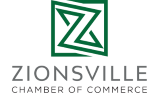
Prepare for Retirement by Understanding Tax Exposure
Prepare for Retirement by Understanding Tax Exposure
by the Storen Team | Mar 12, 2025 | Financial Planning, Resources, Retirement, Taxes
Evaluating Your Tax Exposure and Plans for Distribution
It’s imperative that you’re prepared for the phase of life when you start implementing your retirement plan and utilizing the income you’ve accrued. In the distribution phase, you’ll no longer have a steady stream of income, so you’ll need to maximize every dollar you’ve previously put aside for retirement. Having high returns means nothing if they result in you paying more tax and saving less for your future.
That’s why our financial advisors, many of whom double as registered tax accountants, structure retirement planning to your advantage by not only helping to maximize your investment strategies, but also by considering your tax exposure and plans for distribution. As active members of Ed Slott’s Elite IRA Advisor Group, we are constantly staying up-to-date on the latest developments to tax code and retirement plans in order to stay ahead of changes and pinpoint tax-saving strategies that other advisors may miss.
There are many investment strategies for retirement accounts and income such as 401(k)s, pensions, and Social Security, as well as traditional and Roth IRAs. Each strategy comes with a different impact to your taxes. Some investment accounts are taxable upfront while others are tax-free. Understanding these differences is key to making wise financial decisions and helping you keep more of your hard-earned money. Without knowledge of the related tax laws, you could inadvertently reduce your overall wealth by incurring higher taxes.
Consultations That Emphasize Distribution
During our advisory consultations, you’ll receive the personalized, one-on-one time you need to complete an extensive financial analysis that factors in multiple aspects of your financial picture. We focus heavily on distributions, Roth conversion strategies, and ways to minimize tax, as well as address correct account allocations, risk levels in those accounts, and why these pieces matter.
After your consultation, you’ll walk away with a solid financial plan and recommendations that will help you pursue your specific goals. Because your investment manager and accountant are one and the same, we will marry your investment strategy to your current tax situation. Our utmost goal is for you to keep more of your hard-earned money by paying less in tax, so that you can enjoy a fulfilling and rewarding retirement.
Have questions? Or interested in meeting with our Storen Advisory team? Click here to contact us now. Or click here to learn more about our Financial Planning Investment Services.
What are others saying about Storen Financial? Click here to read testimonials.
Blog by Ronnie Jackson, CFA® – Financial Advisor
Learn more about Ronnie and the rest of the Storen Financial team here.
Traditional IRA account owners have considerations to make before performing a Roth IRA conversion. These primarily include income tax consequences on the converted amount in the year of conversion, withdrawal limitations from a Roth IRA, and income limitations for future contributions to a Roth IRA. In addition, if you are required to take a required minimum distribution (RMD) in the year you convert, you must do so before converting to a Roth IRA.


